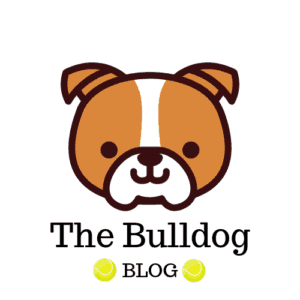Having a four-legged companion is a ton of fun, but it comes with many new responsibilities! One of the most important responsibilities is managing your bulldog’s diet. Ensuring your dog gets nutritious food helps ensure your dog has a healthier, happier, and longer life. As you try to find the right foods to feed your bulldog, you might wonder, where does cheese fit in? Is cheese safe for bulldogs and are there any health benefits?
English bulldogs can eat cheese, as long as they are not lactose intolerant. A little cheese is good for bulldogs as it contains Vitamins A and B and essential fatty acids. Since cheese is high in calories, small portions and low-fat cheeses, like mozzarella, are healthier for bulldogs.
Let’s take a deeper look.
English bulldogs are born with sensitive digestive systems and are easily prone to allergies, intestinal fermentation, food reactions, and flatulence. This is the reason why you should carefully select food for your bulldog. So, coming back to the question: can English bulldogs eat cheese?

Is cheese healthy and for your English bulldog?
Cheese can be a great treat for pets like bulldogs. The recommended percentage of fat in an adult dog’s diet is 5 percent of its total caloric intake. The high quantity of fat available in cheeses can add flavor to your dog’s food, making it more appealing in a healthy and natural way.
You can go for low-fat cheeses like mozzarella or cottage cheese as well. Just stay away from highly processed cheeses. Make sure to check the ingredients list on the back of the packaging to verify that it’s natural. Natural cheese should only contain a few ingredients like cultured pasteurized milk, salt, and enzymes.
Is cheese nutritious for bulldogs?
When it comes to offering your pet nutritious food, say cheese! Its rich contents of Vitamin A, B complex Vitamins, essential fatty acids, antioxidants can help add nutrients to your dog’s diet.
Did you know that English bulldogs grow comparatively slower than other dogs? They also need an average of 1,358-1,451 calories (depending on weight and activity level) from their daily food intake. The Association of American Feed Control Officials recommends 18-22 percent of protein depending on the age of a bulldog, and that’s where cheese might come in handy.
- It has a lot of calcium which helps build up your pet’s bones in its development cycle.
- It contains high amounts of protein which can help your pet grow.
- Studies suggest that cheese could re-mineralize the teeth of your pet
- It contains essential fatty acids that can help make your pet’s skin luminous and healthy
- Antioxidants and other key-ingredients in this food can help your pet fight against blood clotting, muscle contraction, or even chronic diseases like cancer
- Plenty of calcium, protein, and cholesterol makes it an excellent option for nursing or lactating bulldogs, especially during milk fever or eclampsia.
- A relatively low amount of glycemic index in this dairy product makes it highly recommended for any diabetic dog.
- Finally, this food comes with an optimal amount of protein, fat, and calcium to help bulldogs sustain their overall growth and nutrition.
- Added bonus: most bulldogs love it!
Are any specific cheeses or cheese rinds toxic to English bulldogs?
Just because cheese comes with a number of health benefits for your wrinkled buddy, does not mean you should overdo it. Everything in moderation!
Some types of cheese contain large amounts of herbs, onions, garlic, and even chives. These ingredients have high chances of causing toxic reactions and can lead to major digestive issues like diarrhea.
So it’s best to read the labels of any cheese you buy and see if it is safe to give to your bulldog. And secondly, give your bulldog cheese in small portions, to avoid any gastro issues.
How much cheese can bulldogs eat safely in one sitting?
The best part about cheese is that it contains lower quantities of lactose compared to whole milk and is therefore easier for your dog to digest. In other words, pure non-processed cheese is safe for your English bulldog as long as your dog is not diagnosed as overweight, constipated, or lactose intolerant.
But remember, this dairy item contains a high amount of fat, cholesterol, and sodium. Regularly including a slice of cheese in your dog’s meal can lead to your dog putting on too much weight. Be mindful, as overdosing on cheese could cause intestinal disorders, runny nose, wheezing, sneezing, eye irritation, scratching, aggression or even a fatal pancreatic disorder in your dog.
Switch to lower fat cheeses
Here are some options of low fat cheese that might be better for your dog
- Low fat cottage cheese: Contains reduced levels of fat, calcium, and lactose and is particularly good for older dogs.
- Parmesan: Offers lower lactose level and easy digestion
- Low fat mozzarella: Its low-calorie level is good if you have a particularly lazy couch potato at home
Remember to always consult your dog’s vet first before introducing cheese to his or her diet.
Cheese is a great treat to give your bulldog, and does not usually require much in terms of preparation. An occasional tiny chunk of this diary item could make your dog training session even more rewarding! You could also use it to hide the bitter tastes of some medicines.
While cheese is completely safe for your bulldog, it’s best to check the label for nutritional values and calorie contents and offer it in small portions.

